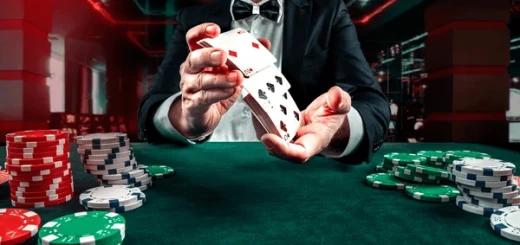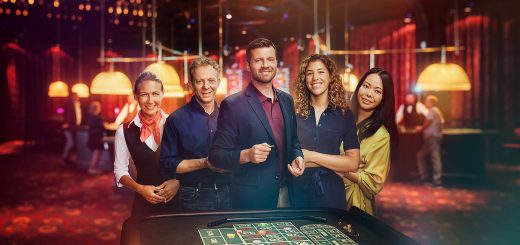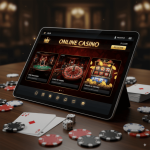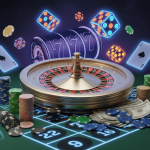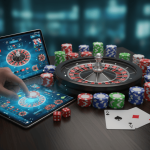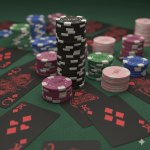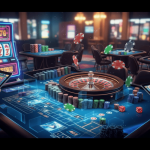Unexpected Triggers: The Smell of Coffee, the Sound of a Broken Terminal, and a Sudden Desire to Play
Subtle Sparks of Urge
Gambling urges aren’t always driven by obvious factors like seeing casino ads or discussing jackpots. Sometimes, they’re sparked by unexpected triggers – a faint aroma, a distant sound, a fleeting memory. At platforms like Neon54, understanding these subtle influences is crucial in promoting responsible play.
This article explores the peculiar yet powerful impact of unexpected triggers, from the smell of coffee brewing to the distant buzz of a broken terminal. We’ll delve into psychological insights, expert opinions, and personal narratives to uncover how these cues unexpectedly activate the desire to gamble.
The Power of Unnoticed Cues
How Triggers Operate
Triggers are sensory or emotional cues that subconsciously activate associations in the brain. Even subtle stimuli can revive vivid gambling memories, instantly reigniting the urge to play.
Examples of Unexpected Triggers
- The Smell of Coffee: A morning coffee aroma might subconsciously remind players of late-night casino sessions fueled by caffeine.
- Sound of a Broken Terminal: An electronic beep, reminiscent of slot machine alerts, can suddenly trigger the memory of a thrilling jackpot.
Understanding Sensory Triggers
Aroma and Memory
The sense of smell is closely linked to memory. Aromas like coffee can recall powerful emotional contexts, often associated with heightened excitement or comfort, typical in gambling environments.
Auditory Triggers
Sounds significantly influence emotional states. The mechanical beep of a broken terminal, similar to electronic casino sounds, can subconsciously activate gambling-related emotions, fostering sudden desires to play.
Psychological Mechanisms Behind Triggers
Conditioning and Association
Frequent gamblers develop strong associations between sensory inputs and gambling outcomes. Over time, neutral stimuli – coffee, sounds, environments – become powerful triggers.
Dopamine Anticipation
The mere hint of sensory familiarity can release dopamine, anticipating pleasure or reward, driving players toward gambling behaviors without conscious intention.
Insights from Behavioral Experts
Dr. Yannis Demetriou, Behavioral Psychologist
“Unexpected triggers work by bypassing conscious control. A smell or sound suddenly transports individuals back into emotional gambling experiences, activating urges through conditioned memories.”
Angela Petrou, Player Insight Specialist
“Our observations confirm that even unrelated environmental cues can significantly impact player engagement, often in unpredictable ways. Understanding these subtle triggers helps us guide players towards healthier gambling behaviors.”
Real-Life Experiences with Unexpected Triggers
Christos, 39, Athens
“I never thought the sound of a broken vending machine would make me crave slots. It took me a moment to realize the sound matched a jackpot I once hit.”
Alexandra, 27, Limassol
“Every time I brew coffee, I get this faint urge to log in to casino. It’s comforting and familiar, a link to nights spent playing online.”
The Role of Environment and Routine
Daily Routines as Triggers
Regular routines – coffee breaks, commuting sounds – become embedded with gambling associations. Routine environments and mundane sensory inputs inadvertently cue gambling memories.
Casino Environment Design
Casinos, online and offline, strategically utilize sensory cues. However, these same cues encountered outside casino contexts distinctive colors or sounds, can unexpectedly trigger desires to play.
Emotional and Cognitive Responses
Emotional Conditioning
Triggers aren’t merely cognitive but heavily emotional. Players often feel nostalgia, excitement, or comfort triggered by familiar sensory inputs, compelling them to engage in gambling behaviors.
Cognitive Dissonance
Players often rationalize triggered urges, attributing sudden desires to personal decisions rather than subconscious conditioning.
Managing Unexpected Gambling Triggers
Mindfulness Techniques
Being mindful of sensory inputs and their emotional effects can significantly help players recognize and manage unexpected gambling urges.
Awareness Programs
Casinos offer educational resources helping players identify common unexpected triggers, promoting responsible gambling through awareness.
Responsible Gaming Strategies
Trigger Identification Tools
Casino integrates player reflection tools, helping identify personal triggers and providing practical suggestions to manage subconscious gambling cues.
Personalized Settings
Players can adjust sensory and notification settings, reducing exposure to potential triggers and facilitating healthier gaming habits.
Societal and Cultural Influences
Cultural Conditioning
Culturally common activities – drinking coffee, socializing – frequently intertwine with gambling contexts, making sensory triggers highly effective.
Social Environment
Group environments, discussions, or shared sensory experiences (coffee breaks, sounds from gaming terminals in public spaces) amplify subconscious gambling triggers.
Long-Term Effects of Unmanaged Triggers
Increased Risk of Compulsion
Frequent unexpected triggering can gradually strengthen the impulse to gamble, leading to compulsion if unmanaged.
Emotional Desensitization
Overexposure to triggers might numb emotional responsiveness, decreasing the capacity to enjoy non-gambling activities.
Conclusion: Navigating the Subtle Influence
Unexpected triggers – such as a coffee aroma or a terminal’s beep – represent the hidden complexities behind gambling behaviors. Recognizing and managing these subconscious cues is essential for maintaining healthy and responsible gambling habits.
Casino acknowledges the potency of unexpected triggers, offering practical tools and insights to help players manage and mitigate these subconscious influences. By increasing awareness and providing strategies, casino supports players in navigating the subtle yet powerful sensory landscape of gambling triggers.

